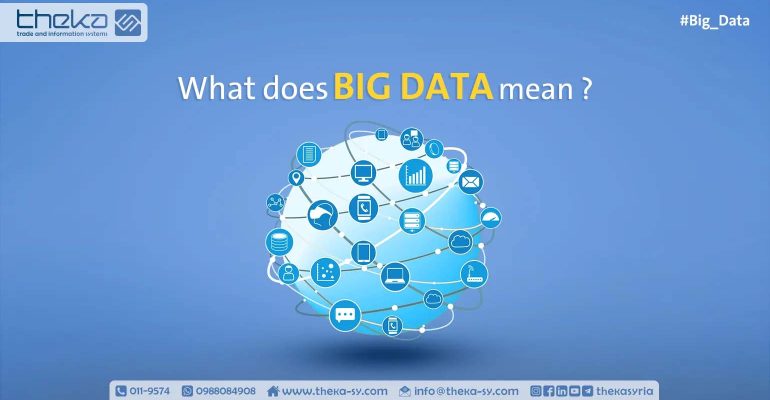What is Big Data or Big Data

What is Big Data or Big Data
Big Data refers to data that is too large, fast, or complex to be difficult or impossible to process using traditional methods.
Definition of Big Data:
It is a set of huge data in size, which is generated at an unsteady speed and increases and grows significantly over time, and is difficult to deal with using traditional data processing and storage devices, and the reason for this is that the data source produces a huge amount of information continuously.
For example, the New York Stock Exchange produces one terabyte of data every day.
And social networks produce more than 500 terabytes of data per day, and this data comes in the form of photos, videos, and even user comments and posts, and this huge data needs to be processed and stored in real time in order to complete its work properly.
Companies use Big Data in their systems to improve operations, provide better customer service, create customer-oriented marketing campaigns, and make faster and more accurate business decisions that can increase revenue and profits.
Medical researchers also use Big Data to help diagnose diseases. In addition, a collection of data from electronic health records, social media sites, and the Internet provides health care organizations and government agencies with always-up-to-date information about infectious disease threats or outbreaks.


